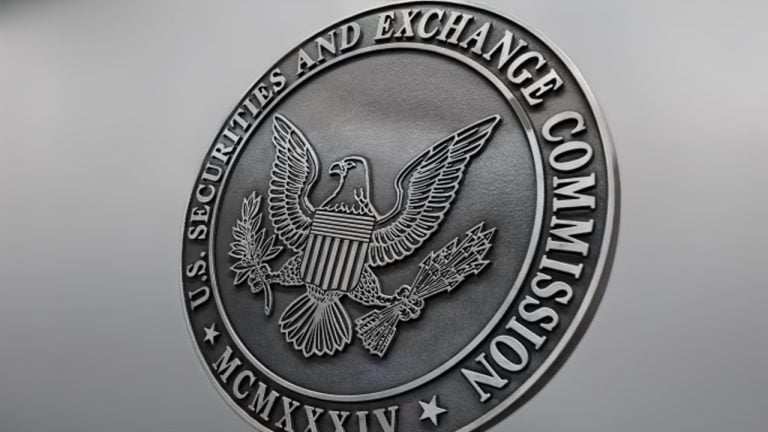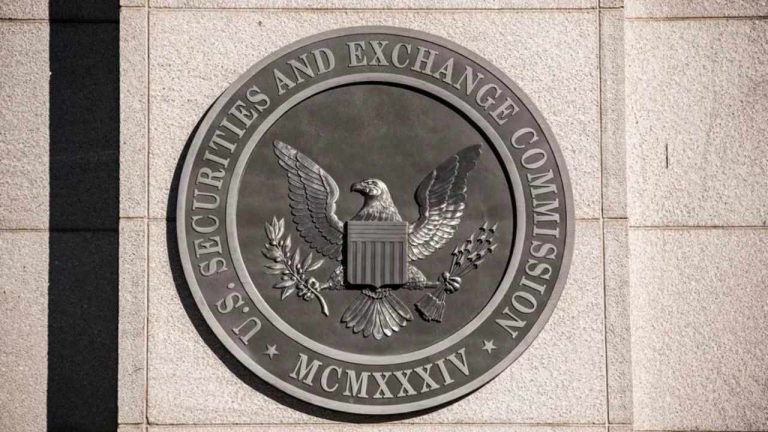
USDC’s massive growth in 2024 marked the stablecoin’s steady recovery following a 45% market cap drop associated with the Silicon Valley Bank collapse in 2023.
Circle’s USD Coin stablecoin outpaced all other stablecoins in terms of market capitalization growth in 2024, after a decline in 2023.
The circulation of USD Coin (USDC) grew 78% year-over-year, outpacing the growth rate of all global stablecoins, Circle said in its third annual State of the USDC Economy Report released on Jan. 14.
“The growth of USDC in 2024 can be attributed to a combination of factors: the maturing regulatory clarity across major markets, the scalability of blockchain infrastructure, and our relentless focus on trust, transparency and utility,” a spokesperson for Circle told Cointelegraph.

New data shows that nearly half of all traditional hedge funds are now reportedly exposed to crypto assets as regulations start to become more clear. According to a new report by Bloomberg, a recent survey revealed that 47% of hedge funds in traditional markets had exposure to crypto assets, up from 29% in 2023 and […]
The post Nearly 50% of Traditional Hedge Funds Now Exposed to Crypto Assets Amid Growing Regulatory Clarity: Report appeared first on The Daily Hodl.

Crypto.com’s lawsuit against the US SEC follows the exchange’s receipt of a Wells notice from the agency.
Major cryptocurrency exchange and service provider Crypto.com is launching a legal battle against the United States Securities and Exchange Commission with the goal of protecting the future of the crypto industry in the country.
Kris Marszalek, co-founder and CEO of Crypto.com, took to X on Oct. 8 to officially announce that the company has filed a suit against the US SEC.
“This unprecedented action by our company against a federal agency is a warranted response to the SEC’s regulation by enforcement regime, which has hurt more than 50 million American crypto holders,” he wrote.
 The chief legal officers at Kraken and Ripple have weighed in on the Federal Court for the Northern District of California’s recent decision in the U.S. Securities and Exchange Commission’s lawsuit against Kraken. “Another court, this time in the Kraken case, confirms there’s no such thing as a ‘crypto asset security.’ Bad news for the […]
The chief legal officers at Kraken and Ripple have weighed in on the Federal Court for the Northern District of California’s recent decision in the U.S. Securities and Exchange Commission’s lawsuit against Kraken. “Another court, this time in the Kraken case, confirms there’s no such thing as a ‘crypto asset security.’ Bad news for the […] The Securities and Exchange Commission (SEC) has decided to end its investigation into Paxos, a New York-based issuer of stablecoins, suggesting that stablecoins may not be treated as securities in most cases. This decision comes more than a year after the SEC sent Paxos a Wells Notice concerning the BUSD stablecoin, which is backed by […]
The Securities and Exchange Commission (SEC) has decided to end its investigation into Paxos, a New York-based issuer of stablecoins, suggesting that stablecoins may not be treated as securities in most cases. This decision comes more than a year after the SEC sent Paxos a Wells Notice concerning the BUSD stablecoin, which is backed by […] Binance CEO Richard Teng described 2024 as a “landmark year” for the cryptocurrency industry in an interview with Bloomberg on Thursday. He cited enhanced regulatory clarity, broader mainstream acceptance, and the introduction of bitcoin spot exchange-traded funds (ETFs). “The momentum continues to be very strong, which is a very encouraging sign for us … Other […]
Binance CEO Richard Teng described 2024 as a “landmark year” for the cryptocurrency industry in an interview with Bloomberg on Thursday. He cited enhanced regulatory clarity, broader mainstream acceptance, and the introduction of bitcoin spot exchange-traded funds (ETFs). “The momentum continues to be very strong, which is a very encouraging sign for us … Other […] Coinbase, Inc. has escalated its dispute with the Securities and Exchange Commission (SEC) by filing a reply brief in the Third Circuit Court of Appeals, arguing the necessity of clear rulemaking for the digital asset industry. The case underscores the ongoing tensions between regulators and the digital asset sector over compliance and operational standards. Coinbase […]
Coinbase, Inc. has escalated its dispute with the Securities and Exchange Commission (SEC) by filing a reply brief in the Third Circuit Court of Appeals, arguing the necessity of clear rulemaking for the digital asset industry. The case underscores the ongoing tensions between regulators and the digital asset sector over compliance and operational standards. Coinbase […] Robinhood Markets is preparing to fight the U.S. Securities and Exchange Commission (SEC) in court to defend its crypto business and establish “regulatory clarity in the United States for the benefit of our customers,” CEO Vlad Tenev said after his company received a Wells notice from the securities regulator. “The SEC’s continued attack on crypto, […]
Robinhood Markets is preparing to fight the U.S. Securities and Exchange Commission (SEC) in court to defend its crypto business and establish “regulatory clarity in the United States for the benefit of our customers,” CEO Vlad Tenev said after his company received a Wells notice from the securities regulator. “The SEC’s continued attack on crypto, […]

Animoca Brands became the biggest validator of the TON blockchain in 2023, banking on the network effect of Telegram’s 800 million users to drive GameFi adoption.
Animoca Brands co-founder Yat Siu is confident that a number of investments and partnerships could prove fruitful in 2024 as mainstream institutional interest in Bitcoin (BTC) gathers steam.
Speaking exclusively to Cointelegraph at the Next Block Expo event in Berlin, the chairman of the gaming venture capital firm highlights some 70 investments made in 2023 that are expected to deliver results next year.
Related: Animoca eyes SportFi ecosystem, becomes Chiliz Chain validator
Chief among these is a high-profile partnership with The Open Network (TON) blockchain, which was announced on Nov.
“We actually think that’s a tool for mass onboarding with TON wallet. What’s not to be excited about?”
Siu also said that Animoca’s acquisition of the social casual gaming platform Gamee in July 2020 is set to capitalize on its growing presence as a gaming platform on Telegram.
“There were no advertising and in-app purchases, and nothing was allowed in Telegram until recently with the integration of TON.


The Coinbase CEO has been hugely critical of the U.S. failure to provide the crypto industry with regulatory clarity and has long argued it will push firms offshore.
“Adversary nations” like China could ultimately benefit from restrictive crypto policies in the United States, warns Coinbase CEO Brian Armstrong.
In a May 30 op-ed for MarketWatch, Armstrong again warned that while recent turbulence in crypto markets might tempt U.S. policymakers “to write it off as an unstable asset class,” doing so could see the U.S. cede its status as a financial leader and innovation hub.
In today's @MarketWatch I'm sharing an op-ed encouraging policymakers to see the big picture with crypto. It's important for American technology leadership and national security that this industry be built (at least in part) in America. https://t.co/I1702aHDGf
— Brian Armstrong ️ (@brian_armstrong) May 30, 2023
Armstrong urged policymakers to see that crypto is “about much more than individual transactions,” but represents a “transformative technology” that can revolutionize a variety of sectors — highlighting its ability to provide creators with royalties for secondary market transactions as an example and adding:
“Crypto, like the internet before it, has the potential to modernize finance and numerous other sectors, from supply chains to social media, by offering a faster, cheaper, more private, and accessible platform.”
Through his status as a public figure and head of Coinbase, Armstrong has long been pushing for U.S. policymakers to provide the crypto industry with regulatory clarity that can help realize crypto’s potential whilst protecting consumers.
Coinbase has continued to ask for clarity from the U.S. Securities and Exchange Commission around which digital assets qualify as securities and has argued against the agency’s “regulation by enforcement” approach. SEC chair Gary Gensler has previously argued that digital assets already fall under existing securities regulations.
Related: SEC settles case against Wahi brothers for Coinbase insider trading
In the op-ed, Armstrong added it was unsurprising that Hong Kong is positioning itself to be a global crypto hub, as China looks to challenge the U.S.’s role as the global financial leader in a variety of ways — such as the recent launch of the digital yuan and Belt and Road Initiatives.
Xi calls for deep alignment between Belt and Road Initiative and Eurasian Economic Union #BRI #China
— Zhang Heqing (@zhang_heqing) May 25, 2023
Chinese President Xi Jinping on Wednesday called for a deeper synergy between the Belt and Road Initiative (BRI) and the Eurasian Economic Union (EAEU) as China looks to enhance… pic.twitter.com/bwFcXIvgk4
He warned that failing to pass comprehensive crypto legislation would result in the U.S. needing to play catch-up and spend billions to bring innovation back to the U.S., but noted that even with a “colossal and sustained effort” it might be too late by then.